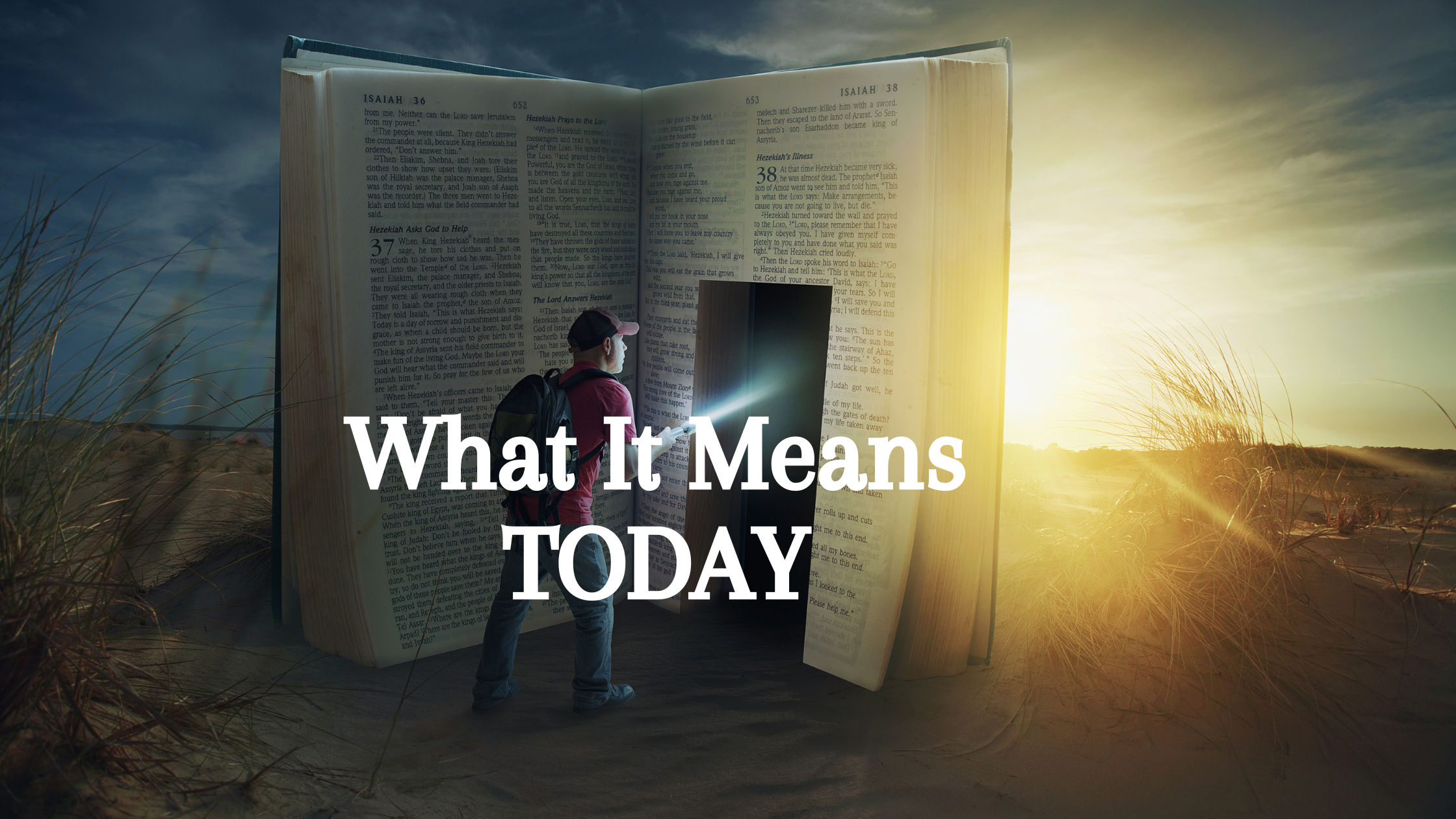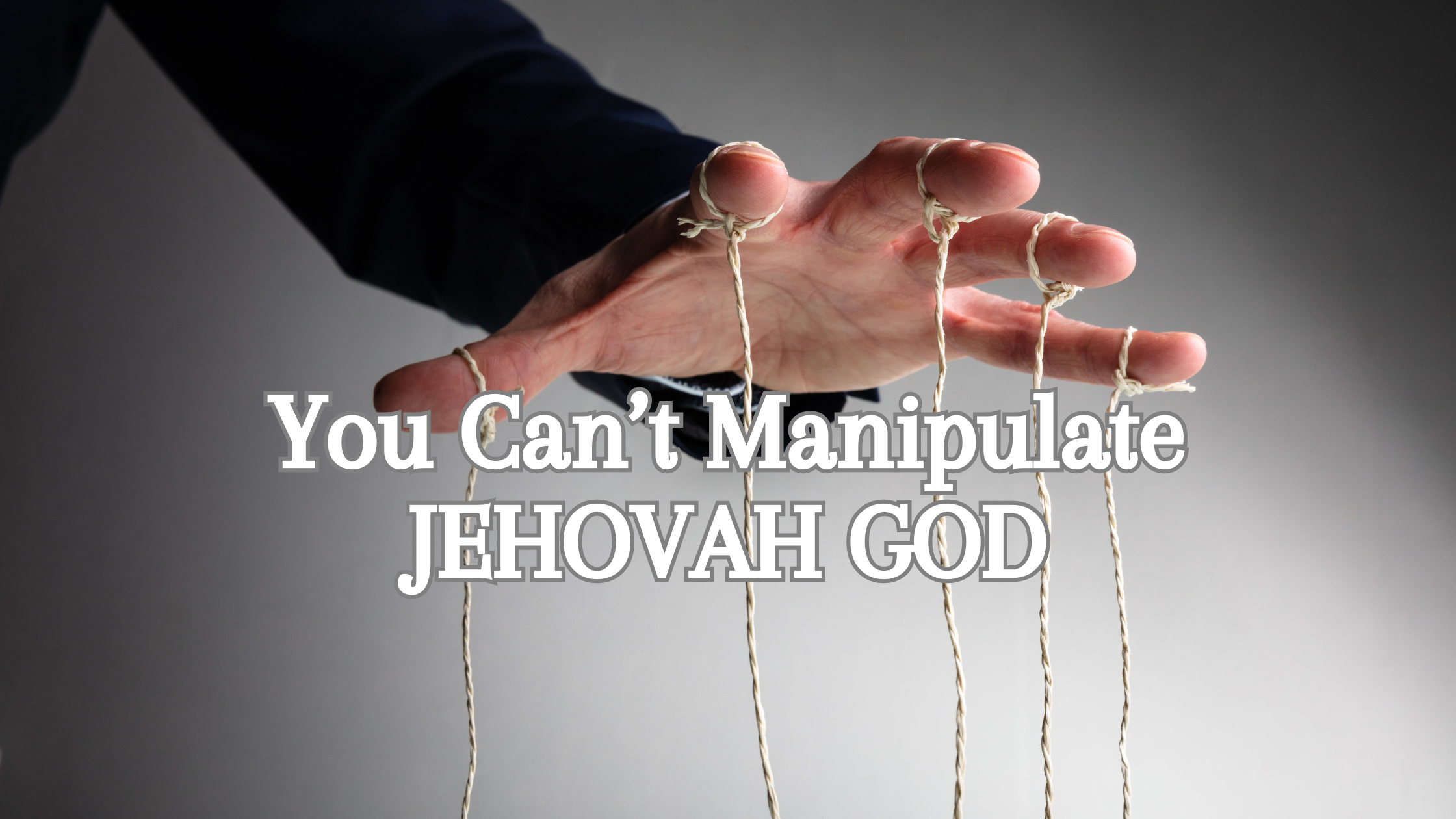
Are You Worshipping God His Way? | Leviticus Series 1
in Worship
Are you tempted to skip over Leviticus when it comes up in your Bible reading schedule? Who would blame you? It’s not like you’re going to remember all those details and rules. And the sacrificial system is so Old Treatment, right? You would be better off reading something that helps you grow in your relationship with God. Ever had those thoughts? Ever skipped Leviticus?
But understanding the fundamental and profound truths from Leviticus can deeply impact your relationship with God. Leviticus is a theologically rich and dense book filled with symbols and pictures to help us understand the deeper spiritual meanings that still hold true for us today.
Leviticus transports us back to a place and time very different from 21st-century life. This means we’re much less familiar with its contents. But when we look closely at the symbolism and the lessons God was teaching His people, we find that Leviticus is tremendously helpful in our own walk with Him.
The big-picture lesson derived from Leviticus is that true worship requires personal holiness and sacrifice. This is true whether you’re an Israelite bringing an offering to the Tabernacle or a modern Christian surrendering dreams and plans on the altar within your own heart.

Why Should Leviticus Matter to New Testament Christians?
It’s true that since Jesus Christ is the Lamb of God who took away the sins of the World (of those who trust by faith), animal sacrifice is no longer required or necessary. But Leviticus is about far more than the act of slaying animals upon an altar.
This is a book about how you can be holy through blood that is made through sacrifice to provide atonement (payment) for your sins. And all of this has been accomplished through the suffering and death of Jesus Christ, the Perfect Sacrifice.
Like so much in the Bible, Leviticus points to our Savior. The phenomenal New Testament truths about sin, blood, sacrifice, forgiveness, and cleansing are ultimately concepts drawn from Leviticus. And this is by God’s design.
Leviticus Is About Holiness
The goal of Leviticus is holiness for the purpose of worship. We know even from the New Testament that sin forces separation but holiness invites intimacy. Leviticus is a call to intimacy with God, which we’ll see in greater detail as we look at the sacrifices outlined in the book.
Understanding holiness requires an understanding of sin and its corruption. As you study Leviticus, you’ll find answers to important questions like:
- What is sin, and how do I deal with it?
- I know God is holy, but what does that mean?
- What is holiness?
- How does sin affect my life and the lives of those around me?
Increasing our awareness and sensitivity to sin motivates us toward holiness and a more intimate relationship with God. This is the understanding Leviticus provides, and it’s a truth that can profoundly impact our spiritual lives today.

Understanding the Difference: Pagan Gods VS Jehovah God
Why was God so intent on teaching holiness to His people? After all, they ARE His people. Shouldn't they already be holy?
The most obvious answer is that human nature moves all of us toward sin, which means that holiness (or separation from sin) is always a need. But of even greater concern was the influence God’s people had been living under for 400 years.
While in Egypt, the children of Israel were exposed to countless pagan gods and after generations of living among an idolatrous culture, God knew He had to clarify a few things. He didn’t want His people to confuse Him with the gods of the Egyptians.
In idol worship, you worship multiple gods and attempt to train them to obey your will like a lion tamer standing before wild beasts. It’s about finding the right formula that will bend the will of the gods to your own will. The goal is that they will bless you and curse your enemies. In a sense, pagan worshippers sought ways to control their gods, thereby becoming gods themselves.
Worshiping Jehovah
But worshiping Jehovah is about bowing before a holy God to find out His will for your life. And that is what God wanted the Israelites to see. And that’s what He wants us to see today.
Through the details of the tabernacle and sacrifices, God is saying,
I am Jehovah. I am the Lord and this is how you approach me. You don’t come to me on your terms: you come to me on my terms. I’m the Lord of Glory: I’m the Ruler of the Universe. I don’t bow to your will: you bow to mine. I’m God–you’re not.
Although God is sovereign, prayer still matters. This same King of the Universe still bends His ear toward us and answers prayers that align with His will. We just need to bow before Him and make our requests with a fuller realization of who we are and who He is.

Exodus Sets the Scene for Leviticus
Before God could lay out the processes and procedures for worship in Leviticus, a few critical things had to happen first.
Exodus ended with the children of Israel arriving at Mount Sinai just four to six weeks after being delivered from slavery in idolatrous Egypt. The presence of God appeared as a cloud over the top of the mount. And His presence was visible for all of Israel to see as they stepped out of their tents each morning. God was near–and yet still removed from His people.
God wanted to dwell with His people, not only above them. So, He commissioned Moses to build a tabernacle–a very specifically designed tabernacle–where He would dwell and His people could approach Him.
But remember this command found in both the Old and New Testaments:
For I am the LORD that bringeth you up out of the land of Egypt, to be your God: ye shall therefore be holy, for I am holy. Leviticus 11:45
Because it is written, Be ye holy; for I am holy. 1 Peter 1:16
At the end of Exodus, Moses had finished the construction of the Tabernacle after following extremely detailed instructions from the Lord Himself. How much margin of error did God leave in the construction of the Tabernacle: zero.

Holiness: Preparing to Meet with God
In building the tabernacle God was exacting in the detail he gave to his people. Why such detail in the building of the Tabernacle and the methods of sacrifice outlined in Leviticus?
As mentioned, God wanted Moses to teach His people to come to Him on His terms and not seek to manipulate or gain power for themselves. He wanted them to know that He is not like the Egyptian gods and that they shouldn’t worship Him as such. These pagan gods they struggled to leave behind were false imitations of a divine reality.
The instructions God gave to Moses in the building of the Tabernacle and the details highlighted throughout the book of Leviticus, show that He is a God of detail. For one to two months, Moses and the congregation prepared to meet with their God. Not only were detailed instructions for building given but also for the cleansing of the temple and the offeror who brought sacrifices.
What does this mean? It means He is a God who is concerned about the details of our lives. He is interested in us walking with Him totally and completely. This is a type of worship that requires sacrifice, cleansing, and holiness.
Are we willing to be holy? To sacrifice? Do we want cleansing? Is worshiping God His way important to us? How we answer these questions will tell us how much we desire to meet with God.

What Is Worshiping God?
Sacrifice was a key part of the process required in preparation for meeting God. He first gave instructions for the burnt offering, which will be covered in the next article. A burnt offering went up in smoke on the altar, but it was voluntary. It was your choice whether to participate or not.
The offerer brought an animal from his herd and placed his hands on the head of the animal. This was a symbolic act that attached the guilt of the offeror to the sacrifice. The animal would then die in his place.
What does this mean for us? How is this worship? It’s a perfect picture of what worshiping is, even for us today.
Worship Means Giving God Your Best
Worship (through sacrifice) was not a spectator sport. It was not a passive activity where they sat back and watched the priests and musicians do their thing on the platform.
It was an interactive experience, and they were actively engaged in the process. They each decided to participate in the sacrifice and had to choose an animal without spot or blemish because God required a perfect sacrifice.
Think about that. Wouldn’t it be a matter of conscience? No one else is there inspecting your herd. Probably no one knows if you chose the most perfect specimen or not. It’s a moment of conscience. You survey your entire herd and see your prize bull. “Eek. Not that one. That’s my PRIZE bull, it will bring me status, further my reputation, and glorify ME. God can’t expect me to give Him THAT one.”
You would have a choice out of all your herd what to give to God. Moment of conscience–am I going to give God my best or something else? The priest may never know. But the offeror knew, and God knew.
And we know. We know when we’re choosing to give God our best or something else. We always know.
What is the Best Way to Worship?
Worship is a personal, interactive, conscience-driven, giving of self, and giving over that which is a source of pride. It is laying your heart low before God. It's voluntary. Worship isn’t what someone else makes you do: it’s something you choose to do.
Key points of worship:
- It’s about coming to God His way, about bowing before Him in recognition of His holiness and supremacy.
- It requires personal self-sacrifice. Not coming empty-handed but coming with your best.
- It’s not about what you can get from God, but what you can give to Him.
Our lives should be regarded as a sacred gift to Him. Ultimately, worship is giving yourself to God and recognizing your need for cleansing and holiness.

Are You Ready to Worship God On His Terms?
Do you really want to worship God?
Heart attitude. That is what worship is about.
Lord, I want to glorify You with the best that I have. I want to know You, and I want to honor You. I want to learn what Your terms are so I can come to You Your way. I really want to know You. God, I want to be holy because You’re holy, and I can’t commune with you unless I am holy too. I want holiness because I want You.
May we truly desire to be holy worshipers living according to God’s commands, because He knows what is best.
This is the call and challenge of Leviticus for the modern Christ follower.
Adapted from Pastor James Wooten’s Sermon: Are You Worshiping God His Way? |The Perfect Sacrifice | Leviticus Series 1 (6.4.23)


